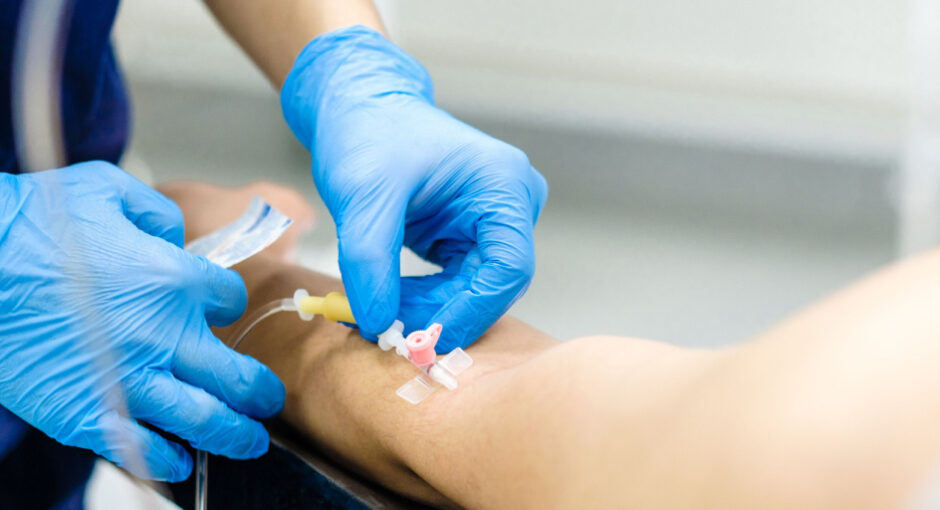The potential cost to the U.S. government next year of remedying unlawful Medicare Part B drug payment cuts for 340B hospitals could be higher than federal Medicare officials think.
The U.S. Centers for Medicare & Medicaid Services in mid-July put the annual figure at about $1.96 billion. A few days later, a federal advisory board reported that the figure is closer to $2.3 billion—a $340 million difference. Since 2018, the sum typically seen in court documents has been $1.6 billion per year—most recently in a U.S. Supreme Court opinion.
In 2018, CMS slashed Medicare Part B reimbursement for hospitals’ 340B purchased drugs from average sales price plus 6% to ASP minus 22.5%. The cut has continued since then. National hospital groups sued, and last June the U.S. Supreme Court ruled unanimously that the cuts for 2018 and 2019 were illegal.
National hospital associations and groups of individual 340B hospitals have asked a federal district judge in Washington, D.C., to order CMS to immediately begin reimbursing hospitals for 340B-purchased drugs given to Part B beneficiaries at ASP plus 6% for the rest of 2022, and to swiftly repay 340B hospitals what they were underpaid from 2018 through 2021. HHS wants the judge to let it “devise a solution for all of the calendar years at issue, given the potential for disruption in the immense and complex system that has been entrusted to the agency to operate.”
There have been various estimates of how much money is at stake.
In November 2017, when CMS finalized the 340B drug reimbursement cut for the coming year, it estimated that the reduced payments to 340B hospitals would total $1.6 billion.
That is the amount that was cited over and over again in court filings and opinions in the litigation over the cuts. The U.S. Supreme Court’s unanimous June 15 opinion declaring the cuts for 2018 and 2019 unlawful said that the U.S. Health and Human Services Department (HHS) estimated that the cuts saved Medicare (and deprived 340B hospitals of) about $1.6 billion annually for each of those two years.
On July 15 in its hospital outpatient prospective payment system (OPPS) proposed rule for 2023, CMS estimated based on 2021 data that next year it would take an extra $1.96 billion for Part B to pay hospitals for 340B drugs at a rate of ASP plus 6% instead of at ASP minus 22.5%. That’s $360 million above the annual amount that the Supreme Court cited.
Four days later, on July 19, the Medicare Payment Advisory Commission (MedPAC) said in its latest annual Data Book that the 340B drug payment cut “reduced 2020 Medicare Part B spending on drugs in outpatient hospitals by about $2.3 billion.” That’s $340 million more than CMS’s July 15 estimate and $700 million more the amount mentioned in the June 15 Supreme Court decision.
Hospitals Weigh in on Cuts’ Impact
CMS in its OPPS proposed rule for 2023 invited the public to comment “on the best way to craft any potential remedies affecting cost years 2018-2022.” The deadline for comments is Sept. 13 but some 340B hospital stakeholders have already begun weighing in.
Monefiore Nyack Hospital in Nyack, N.Y., told CMS that the Part B drug payments cuts “resulted in a loss of $4.3 million in annual revenue. On a pro rata basis, we were the most negatively impacted hospital in New York State.”
“As a result we have fewer resources to provide services to this community most in need,” it said. “We urge the agency to ensure no further harm is done to any hospital by promptly paying 340B hospitals the funds they are rightfully owed and not unfairly, unlawfully and unprecedentedly recouping any funds from hospitals who were paid as part of the agency’s own unlawful policy.”
Michigan health system Bronson Healthcare Group told CMS that its loss of Part B drug reimbursement revenues for 340B drugs “contributed to the need for our organization to conduct a reduction in force in 2019. In total, the annualized impact of these reductions represented approximately 90 FTEs.”
“These reduction had negative impacts on clinical care teams and the organization’s ability to provide access to healthcare to underserved populations,” Bronson said.
South Dakota health system Monument Health told CMS it “serves a disproportionate share of vulnerable rural and reservation populations. The investment in community needs and cost of uncompensated care exceeds 340B savings and Medicare reimbursement revenue.”
The loss of Medicare Part drug reimbursement for 340B drugs “significantly increased the challenge of providing and increasing access and care,” Monument said. “Prompt repayment of the funds is important to stretch scarce resources to enhance or implement needed services including, but not limited to, obstetrics, cancer care, chronic disease management programs, and preventative primary care.”
Marshall Medical Center in Placerville, Calif., told CMS that, “Over the two year period 2020-2022, Marshall spent more on Covid response than we were reimbursed by Federal grants. That impact, combined with the 340B reimbursement reduction impacts of over $2 million, have made it very difficult for our not-for-profit hospital to serve the community’s many needs.”


